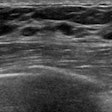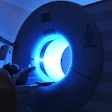
With hopes dashed for a permanent fix, on March 31 the U.S. Senate, by a vote of 64 to 35, cleared legislation passed by the U.S. House of Representatives to implement a 12-month patch to stave off cuts mandated by the sustainable growth rate (SGR) formula, set to go into effect April 1.
The Protecting Access to Medicare Act of 2014 replaces the cut with a 0.5% increase in payments through December of this year and a 0% update from January 1 to April 1, 2015. The legislation now heads to President Barack Obama for his signature.
The short-term patch came after hopes had initially been raised that representatives would find a permanent solution to the SGR impasse, in which Congress must act each year to postpone physician reimbursement cuts mandated by a formula that pegs Medicare rates to the U.S. gross domestic product.
Physician groups immediately weighed in on the Senate's action.
The patch is a missed opportunity, according to the American College of Physicians (ACP), which sought a longer-term deal.
"The Senate today followed the House of Representatives and voted for the 17th short-term Medicare SGR patch over the past 11 years, rather than real and permanent physician payment reform," said President Dr. Molly Cooke in a statement.
But the American College of Radiology (ACR) lauded the measure, citing the fact that, for the first time, the bill requires ordering physicians to consult appropriateness criteria when ordering advanced imaging procedures for Medicare patients. It also directs the secretary of the U.S. Department of Health and Human Services (HHS) to identify clinical decision-support tools to help physicians do this.
The legislation also includes several provisions designed to mitigate the impact of future cuts in Medicare reimbursement. For example, cuts greater than 20% would have to be phased in over two years, the U.S. Centers for Medicare and Medicaid Services (CMS) would have to justify the 25% multiple procedure payment reduction, and the implementation of ICD-10 codes would be delayed as providers work to transition to the new system.
"The [ACR] applauds the Senate for passing the bill today, and both Houses of Congress for warding off massive provider payment cuts mandated by the flawed SGR formula, and taking a landmark step toward modern, evidence-based health care," the organization said.
The bill now goes to President Obama for signature.



















